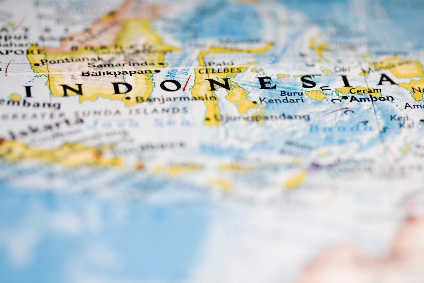
Indonesia is making a push to ensure seven key industries – including textiles and clothing – are more Industry 4.0 relevant in order to boost efficiency and competitiveness.
In 2018 the President of the Republic of Indonesia, Joko Widodo, launched a road map for ‘Making Indonesia 4.0’ with the aspiration of putting Indonesia into the top ten of the world economy by 2030.
“It is hoped that Indonesia will be in the top ten with net exports reaching 10% of Gross Domestic Product (GDP), doubling industrial productivity, and building local innovation capabilities by increasing research and development (R&D) funding allocations to reach 2% of GDP,” said Eko SA Cahyanto, director general of Security, Zoning, and Access Industries International (KPAII) at the Ministry of Industry today (14 April).
To achieve this, the Government has determined ten national priorities in ‘Making Indonesia 4.0’, namely, increasing the flow of goods and materials, redesigning industrial zones, accommodation for sustainability standards, empowering medium and small scale enterprises (MSMEs), building national digital infrastructure, attracting foreign investment, improving the quality of human resources, developing an innovation ecosystem, incentives for technology investment, and harmonising rules and policies.
The Ministry of Industry (Kemenperin) has identified seven sectors – food and beverage, textiles and clothing, automotive, chemical and electronic, pharmaceuticals and medical devices – based on the impact they will have and the ease in implementing industrial technology. The sectors also contribute around 70% of industrial GDP, 65% of industrial exports, and 60% of the workforce in the manufacturing sector.
In an effort to accelerate the transformation, the Ministry of Industry is actively increasing awareness of industry players through the Indonesia Industry 4.0 Readiness Index (INDI 4.0). Through this programme, companies can measure the level of industry readiness to transform towards industry 4.0 with an independent assessment.
How well do you really know your competitors?
Access the most comprehensive Company Profiles on the market, powered by GlobalData. Save hours of research. Gain competitive edge.

Thank you!
Your download email will arrive shortly
Not ready to buy yet? Download a free sample
We are confident about the unique quality of our Company Profiles. However, we want you to make the most beneficial decision for your business, so we offer a free sample that you can download by submitting the below form
By GlobalData“With the readiness of industry in the country to implement Industry 4.0, we can build an industrial innovation ecosystem 4.0,” Cahyanto said. The Government has plans to build a Center for Innovation and Development of Industrial Human Resources (PIDI 4.0) to provide direct experience and assistance to the industries in implementing industry 4.0.
“PIDI 4.0 will become a digital manufacturing learning centre that helps companies develop their operations, designs and productivity throughout the value chain.”
The Ministry of Industry is also currently developing a programme related to smart-eco industrial parks, which is also in line with efforts to realise sustainable industrial development and apply green industry principles, as well as increase competitiveness.
Smart industrial estates will take advantage of Industrial 4.0 technology, such as automation, artificial intelligence (AI), the Internet of Things (IoT), as well as the digital ecosystem in operation. They will be “an innovative model for integrating supply and demand for energy, water, waste and logistics, and security,” the Ministry says.
“This forms a synergy between humans and high technology, equipped with adequate facilities and infrastructure, proving that Indonesia is ready to implement Industry 4.0,” Cahyanto added.
To further support industry players and technology providers, the Ministry says it will optimise regulations and policies to make it investor-friendly. “We strive to make Indonesia a home for industrial players who make efficiency, collaboration and connectivity as the main principles in running their business,” Cahyanto concluded.



